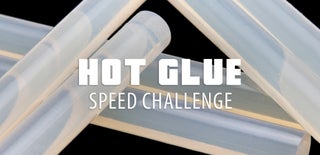Introduction: DIY MP5 Player From TV Speaker - Best Value 2019
Hello friends. Nice to meet you again in this wonderful project. Thank you for being here, visit my YouTube channel. Wishing you and your family lots of health and happiness.
Hot glue is always a great choice for my DIY projects. Let's get started.
My small project will have 2 main parts.
1. Working with wood and some small tricks with wood.
2. Circuits and speakers.
Good luck
Step 1: Tool and Parts
1. iMars 7 Inch LCD Touchscreen - 2 Din Car MP5 Player With Rear Camera
https://www.banggood.com/IMars-7-Inch-2-Din-Car-MP...
2. Old TV speaker for free
3. Soldering iron, soldering tin, rosin
4. May you love: Double Head YT-180A Wood Sheet Metal Nibbler Cutter Power Drill Attachment Holder Tool
https://www.banggood.com/Double-Head-YT-180A-Wood-...
5. 4S 40A Li-ion Lithium Battery 18650 Charger PCB BMS Protection Board
https://www.banggood.com/4S-40A-Li-ion-Lithium-Bat...
6. Adjustable Circle Cutter
https://www.banggood.com/Adjustable-120200300mm-Ci...
7. Angle Clip 90 Degree Clamps
https://www.banggood.com/Multifunction-Right-Angle...
8. Countersink Drill Bit
Step 2: 1. Working With Wood and Some Small Tricks With Wood.
I chose 15mm MDF because it's quite cheap. I bought a 1.2mx2.4m wooden board for $ 13.
There will be many different types of MDF. I think this type is suitable for making speakers because it is easy to construct, not warping, cheap.
We use Jig Saw and Circle Cutter to create holes that fit the speaker.
Step 3: 1.1 Some Tips
- You will use a small 2mm drill to drill the bait. This helps to avoid breaking the wood when you use screws.
- Please select a screw of appropriate length.
- Experience when creating box is that you create borders first. Then just put 2 sides up and that's it.
- If you have a Angle Clip 90 Degree Clamps, that's great, it's a lot easier.
Countersink Drill Bit is what you will need to cover the screws.
Step 4: 1.2 Some Tips
- With some simple tools. Your cut will not be perfect. Sandpaper is required to polish them.
- Wood pulp after sanding we will mix with latex glue for wood to fill gaps.
- After sealing gaps and screws with wood pulp, we will polish it again before painting or decal stickers.
- Use a paper knife to cut.
- Use super glue to glue the outer edge. Pour super glue onto 1 sheet, use 1 small stick to paste.
Step 5: 2. Circuits and Speakers
- Use electrical junction box and drill 1 hole just enough to attach components such as switches ...
- We will use hot glue to cover the gaps.
- Use hot glue to attach the speaker and the rest of the components
- Hot glue really works, it seals the gap perfectly in a very fast time. You can also use a hair dryer if you want to make "Hot glue" hot again.
Step 6: 2.1 Circuits and Speakers
- Mount the monitor. The hole in the screen I made is slightly bigger than the screen so I can adjust the angle of the screen.
- Attach other components such as GPS.
- Connect the speaker to the system. Remember to choose the right pole. Strings with black lines are negative strings. For example, black and green are negative strings. You should use soldering torch if possible, the joint will be stronger.
-
Step 7: 2.2 Circuits and Speakers
- I use circuit 4S4P-16.8v. You can use the old laptop battery to save costs.
- We will use 2 switches to use the modes:
+ Use battery
+ Charge the battery
+ Use adaper
I have a diagram on the picture for you guys.
- If you use a lot of ports like me. Take notes.
- I use the AV wire of 0.5m length to connect it will be more neat. Use a good wire to get a good signal, especially for video.
- Use magnets to open and close faster.
Step 8: 2.3 Circuits and Speakers
- Thicker edges will favor the bass. It is no exception to TV speakers. The best way is you will listen to try. But if you are not ready to listen, one more experience is to press the speaker perpendicular to the driver. Any speaker that is more resilient will be a midrange speaker.
- If you do not use the Passive Radiator, leave the vents open. I use Passive Radiator and hot glue is a great option to help me seal the cabinet.
- TV speakers usually have a capacity of about 10W to 15W and they have a resistance of about 8ohm. You can pair up to 2 TV speakers in parallel to increase power. Always remember the RLC formula. You can only pair the speaker in parallel if after pairing the speaker resistance> = 4ohm.
- The formulas shown are for inductors (L) and capacitors (C). Resistors (R) act in the same way as inductors, so all inductor formulas can be applied to resistors.
- As you can see, I added a non-polar capacitor to the speakers. I usually use 2.2uF capacitors for Treble speakers. 100uF capacitor for Mid speaker. Of course this formula is only for TV speakers in my experience.
- You can use ElectroDroid software to select the filter section to calculate the appropriate audio frequency value according to your music taste.
- For example, the impedance of the speaker is 8ohm I add 2.2uF capacitor I get the frequency is 9.043kHz. It is Treble.
- This is the audio frequency table.
- Of course, your ears decide which frequency you want to hear. Simply increase or decrease the value of capacitors, resistors, inductors or all 3.
+ Bass
Low bass (Deep bass) : ~ 20Hz – 80Hz·
Bass : ~ 80Hz – 320Hz·
Upper bass (High bass) : ~ 320Hz – 500Hz
+ Mid
Low mid : ~ 500Hz – 1kHz·
Mid : ~ 1kHz – 2kHz·
High mid : ~ 2kHz – 6kHz
+ Treble
~ 6kHz - 20kHz
Step 9:

Participated in the
Hot Glue Speed Challenge













